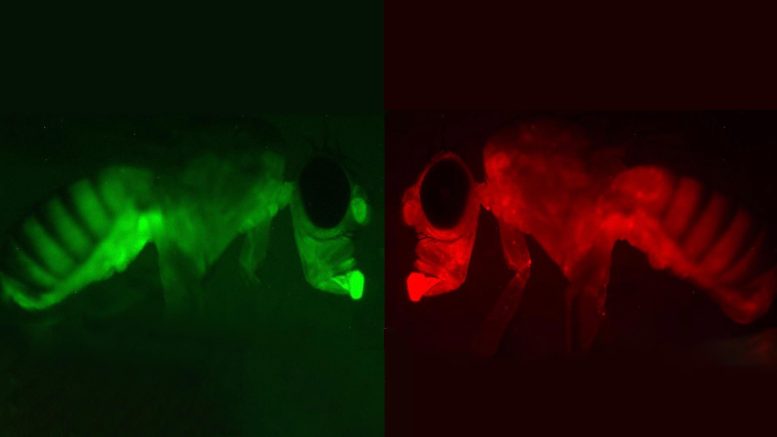
Scientists have identified a potential new benefit of a well-known drug: extending lifespan by improving mitophagy, the process that clears damaged mitochondria.
New research from biologists at USC Dornsife College of Letters, Arts and Sciences suggests that mifepristone, a drug primarily used to terminate early pregnancies, may also have lifespan-extending properties. These findings could contribute to the development of anti-aging therapies.
Mifepristone, which is also prescribed for Cushing’s disease and certain cancers, has attracted scientific interest for its potential role in promoting longevity. In a study on fruit flies, John Tower, a professor of biological sciences at USC Dornsife, compared its effects to those of rapamycin—another drug known to extend lifespan in various animal species.
Published in the journal Fly, the study found that both drugs independently prolonged the lives of fruit flies. However, when used together, they did not provide additional benefits and slightly reduced lifespan, suggesting they function through the same biological pathway.

How Mifepristone Affects Aging
To understand how mifepristone and rapamycin might extend lifespan, researchers focused on mitophagy. Mitophagy is like a cellular “cleanup” process in which damaged or dysfunctional mitochondria — the cell’s energy producers — are broken down and recycled. Impaired mitophagy has been linked to aging and age-related diseases, while increased mitophagy is believed to be a factor in rapamycin’s life-extending effects.
For the first time, the researchers were able to noninvasively measure mitophagy in fruit flies. They found that mifepristone increased mitophagy to the same extent as rapamycin.
“The noninvasive in vivo mitophagy assay is novel, and our findings suggest that enhancing mitochondrial health could be central to how both drugs extend lifespan,” Tower said.
The fact that mifepristone — a drug already approved for various medical uses — can boost mitophagy points to its potential as an anti-aging treatment, added Tower, whose previous research has shown anti-aging benefits from the drug. Because it is already approved, repurposing mifepristone for anti-aging clinical trials could be faster, potentially accelerating the development of new longevity therapies.
Future research will need to determine whether the effects observed in fruit flies can be replicated in humans, said Tower. If so, mifepristone might provide a relatively accessible and safe way to reduce age-related cellular decline, paving the way for other therapies that enhance mitochondrial health to support longevity.
Reference: “Mifepristone and rapamycin have non-additive benefits for life span in mated female Drosophila” by Gary N. Landis, Britta Baybutt, Shoham Das, Yijie Fan, Kate Olsen, Karissa Yan and John Tower, 23 October 2024, Fly.
DOI: 10.1080/19336934.2024.2419151
The study was funded by the National Institute on Aging.





Discussion about this post